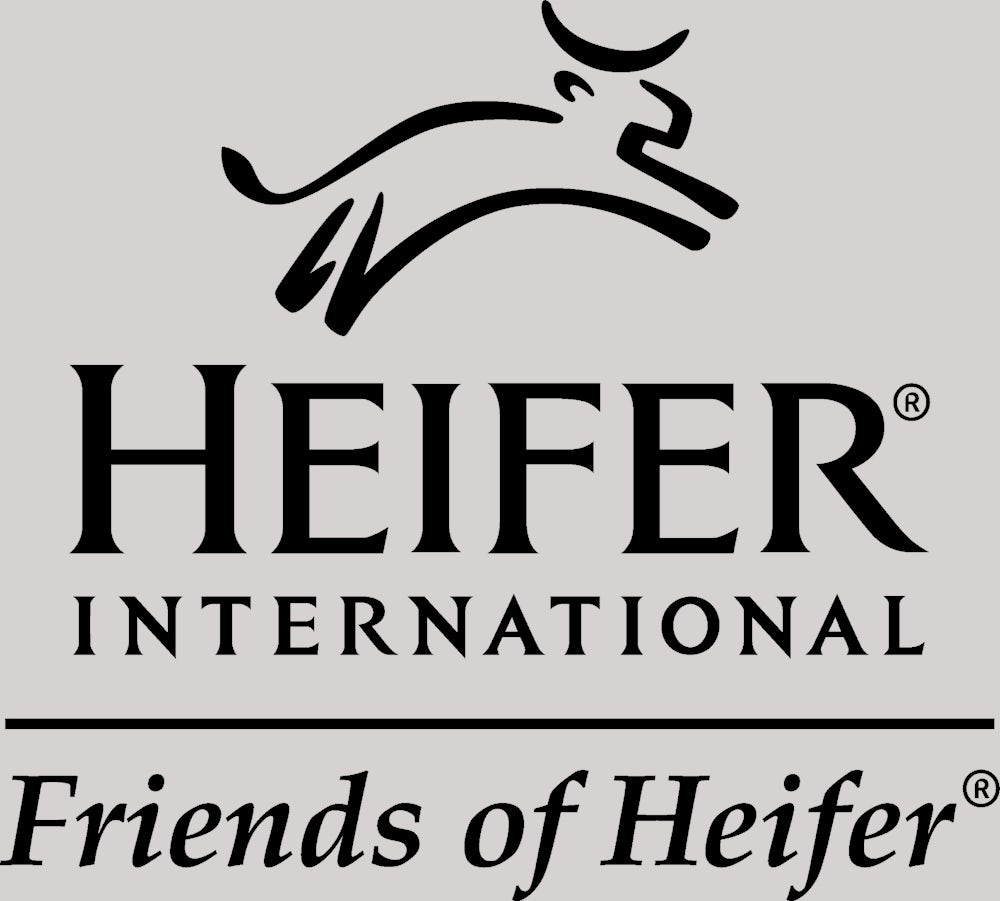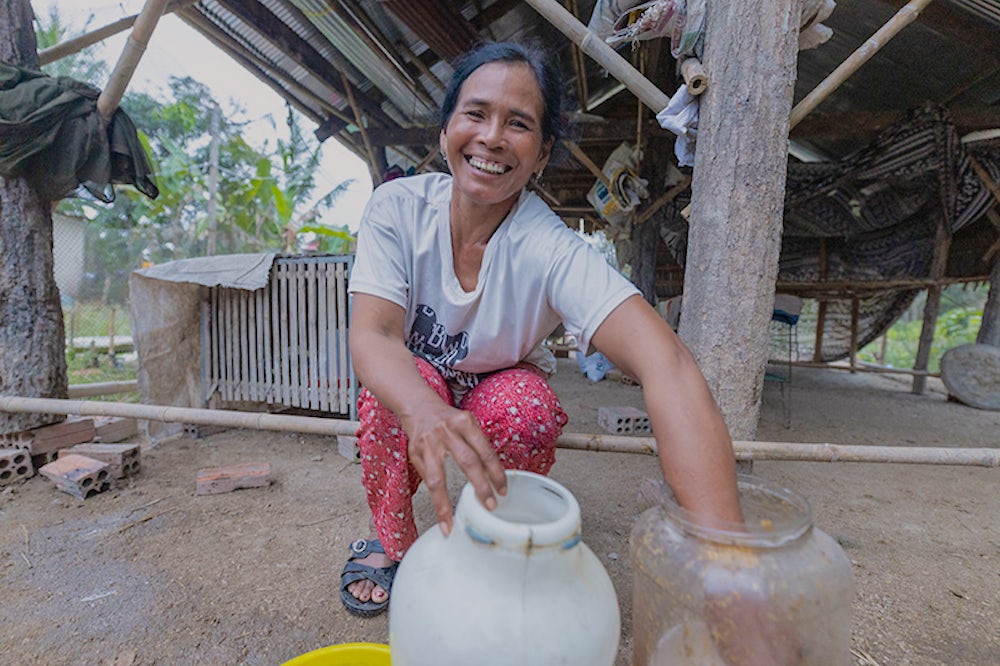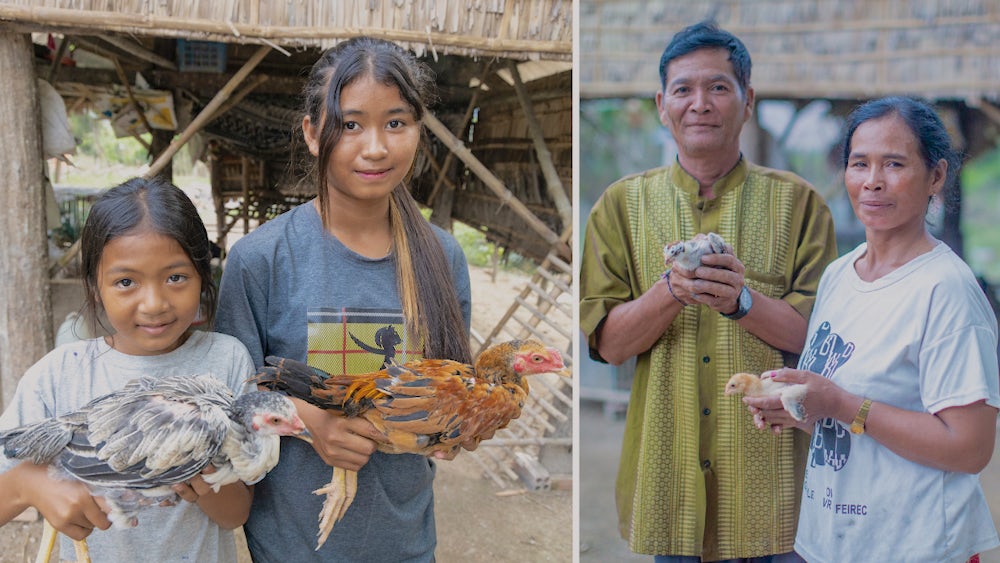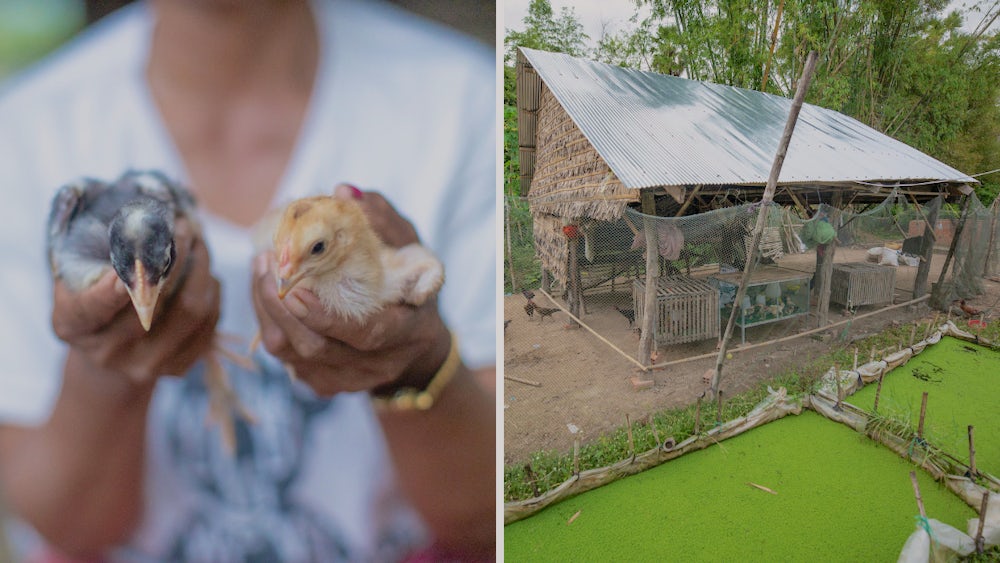
Most of the families and farmers whose lives you touch as a Friend of Heifer have experienced some form of trauma. But those endured by Orn Chanraun, a mother of 10 who lives in central Cambodia, are among the most chilling.
Chanraun was a child during the reign of the Khmer Rouge, a brutal totalitarian regime that killed more than 2 million people. Those who did not die of famine or disease were victims of genocide during the regime’s rule, which began in 1975 and ended in 1979.
At around age 7, Chanraun was left alone. Someone — her parents or siblings — was supposed to pick her up from her nanny’s house, but no one did. She never saw any of them again. She can’t even remember her parents’ names or how many siblings she had.
It’s heartbreaking to think how scared and alone she must have felt!
Fortunately, Chanraun’s nanny protected the little girl and kept her safe. Today, Chanraun views the nanny and her husband as her parents, and her nanny’s daughter as her sister.

And this is what I find one of the more remarkable aspects of her truly remarkable story: Chanraun, along with her husband Sok Noeun, adopted five orphan children – who are an expression of her gratitude and good fortune. “It reminds me of when I was young and I had no parents and I was happy someone adopted me,” she said.
Toward the end, as the regime was crumbling, authorities marched the people of Chanraun’s village toward the mountains. For most, it was a march of death. Some were told to jump into a waterfall. Those who refused were shot. Many who jumped, drowned. Chanraun and her new family were among those who, by some miracle, landed in shallow water and lived.
After that, she recalls, “We lived in the forest. No shelter — just slept under the trees. Sometimes we have rice to eat, sometimes no rice to eat.”
But Chanraun did not let the terror and tragedies of her younger years stop her from building a life for herself. She married Noeun, and the two of them went on to raise 10 beautiful children. Unfortunately, food was scarce for the growing family. If there was any meat, it went to the children, while Chanraun and Noeun lived on the few vegetables and rice they grew on their small farm.

And then, Chanraun found out about Heifer.
You see, agriculture is Cambodia’s primary industry, but most farmers lack the tools they need to go beyond living day to day and earn sustainable incomes. Heifer focuses on chicken, swine and vegetable farming in Cambodia and works with a network of 52 farming cooperatives, providing training and resources to help some 333,000 families like Chanraun’s build thriving farms.
Chicken is hugely popular in Cambodia — but even though 80% of Cambodian farmers raise chickens, as much as 30% of the country’s demand is met through imports. Heifer aims to help Cambodian chicken farmers secure a larger part of their own market — and earn better, more reliable incomes — by consolidating production, processing and sales through the cooperatives.
Chanraun belongs to a self-help group that is part of the Melum Samaki Rongroeung Agricultural Cooperative, and she extols the benefits of Heifer training. Before Heifer, she kept her chickens outdoors, occasionally tossing handfuls of rice for them to eat. Now, she maintains a tidy chicken coop with a sheet metal roof, raised cages and a large, enclosed area for the chickens to move about. She keeps their eating areas clean and monitors their health, adding ginger, garlic and sugar to the water when they seem sluggish.

Before, Chanraun said she didn’t know how to look at her chickens and tell when they were sick. Now, thanks to Heifer, she can recognize and treat illness. According to Thong Saiyann, Heifer Cambodia Livestock Technology & One Health Manager, the mortality rate for chickens has dropped from 70 to 80% to below 10%, thanks to proper shelter, nutrition, vaccinations and veterinary care.
Heifer showed Chanraun how to grow high-protein algae and mix it with commercial feed. Now, she says, “The chickens grow a lot faster than before” and are ready to sell in just three or four months. More frequent sales mean more income for the family. The additional income they earn from their chicken business helps pay for their children’s education, including extra lessons in math and computers.
With Heifer’s backing, the cooperative is exploring new business ventures, including selling fertilizer, rice seed and chicken feed. All participants are taught about Heifer’s 12 Cornerstones for Just and Sustainable Development, which help to establish a set of common values for our partnership. As a relatively recent participant, Chanraun is still absorbing these lessons, but one — Sharing and Caring — has made a distinct impression.
“I’m happy because I receive and then I give to others, and they also feel happy like me,” she says.
Your generous gifts bring hope, prosperity and stability to families ravaged by war and poverty. On behalf of everyone at Heifer, thank you for your compassion and generosity.
